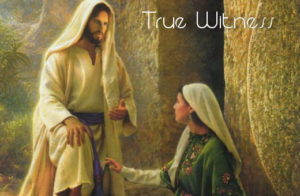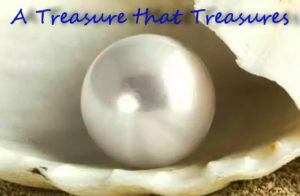 First Reading Exodus 34:29-35
First Reading Exodus 34:29-35‘Again, the kingdom of heaven is like a merchant looking for fine pearls; when he finds one of great value he goes and sells everything he owns and buys it.’
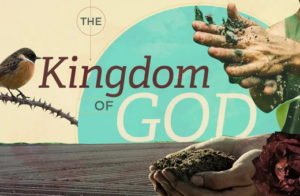 First Reading Exodus 33:7-11,34:5-9,28
First Reading Exodus 33:7-11,34:5-9,28Moses used to take the Tent and pitch it outside the camp, at some distance from the camp. He called it the Tent of Meeting. Anyone who had to consult the Lord would go out to the Tent of Meeting, outside the camp. Whenever Moses went out to the Tent, all the people would rise. Every man would stand at the door of his tent and watch Moses until he reached the Tent; the pillar of cloud would come down and station itself at the entrance to the Tent, and the Lord would speak with Moses. When they saw the pillar of cloud stationed at the entrance to the Tent, all the people would rise and bow low, each at the door of his tent. The Lord would speak with Moses face to face, as a man speaks with his friend. Then Moses would turn back to the camp, but the young man who was his servant, Joshua son of Nun, would not leave the Tent. And the Lord descended in the form of a cloud, and Moses stood with him there. He called on the name of the Lord. The Lord passed before him and proclaimed, ‘The Lord, a God of tenderness and compassion, slow to anger, rich in kindness and faithfulness; for thousands he maintains his kindness, forgives faults, transgression, sin; yet he lets nothing go unchecked, punishing the father’s fault in the sons and in the grandsons to the third and fourth generation.’ And Moses bowed down to the ground at once and worshipped. ‘If I have indeed won your favour, Lord,’ he said ‘let my Lord come with us, I beg. True, they are a headstrong people, but forgive us our faults and our sins, and adopt us as your heritage.’
Leaving the crowds, Jesus went to the house; and his disciples came to him and said, ‘Explain the parable about the darnel in the field to us.’ He said in reply, ‘The sower of the good seed is the Son of Man. The field is the world; the good seed is the subjects of the kingdom; the darnel, the subjects of the evil one; the enemy who sowed them, the devil; the harvest is the end of the world; the reapers are the angels. Well then, just as the darnel is gathered up and burnt in the fire, so it will be at the end of time. The Son of Man will send his angels and they will gather out of his kingdom all things that provoke offences and all who do evil, and throw them into the blazing furnace, where there will be weeping and grinding of teeth. Then the virtuous will shine like the sun in the kingdom of their Father. Listen, anyone who has ears!’
 First Reading Exodus 32:15-24,30-34
First Reading Exodus 32:15-24,30-34Moses made his way back down the mountain with the two tablets of the Testimony in his hands, tablets inscribed on both sides, inscribed on the front and on the back. These tablets were the work of God, and the writing on them was God’s writing engraved on the tablets. Joshua heard the noise of the people shouting. ‘There is the sound of battle in the camp’, he told Moses. Moses answered him: ‘No song of victory is this sound, no wailing for defeat this sound; it is the sound of chanting that I hear.’ As he approached the camp and saw the calf and the groups dancing, Moses’ anger blazed. He threw down the tablets he was holding and broke them at the foot of the mountain. He seized the calf they had made and burned it, grinding it into powder which he scattered on the water; and he made the sons of Israel drink it. To Aaron Moses said, ‘What has this people done to you, for you to bring such a great sin on them?’ ‘Let not my lord’s anger blaze like this’ Aaron answered. ‘You know yourself how prone this people is to evil. They said to me, “Make us a god to go at our head; this Moses, the man who brought us up from Egypt, we do not know what has become of him.” So I said to them, “Who has gold?,” and they took it off and brought it to me. I threw it into the fire and out came this calf.’
Many Jews had come to Martha and Mary to sympathise with them over their brother. When Martha heard that Jesus had come she went to meet him. Mary remained sitting in the house. Martha said to Jesus, ‘If you had been here, my brother would not have died, but I know that, even now, whatever you ask of God, he will grant you.’ ‘Your brother’ said Jesus to her ‘will rise again.’ Martha said, ‘I know he will rise again at the resurrection on the last day.’ Jesus said: ‘I am the resurrection and the life. If anyone believes in me, even though he dies he will live, and whoever lives and believes in me will never die. Do you believe this?’ ‘Yes, Lord,’ she said ‘I believe that you are the Christ, the Son of God, the one who was to come into this world.’
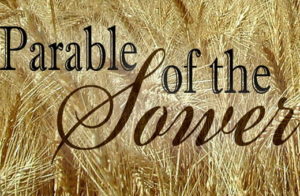 First Reading Exodus 16:1-5,9-15
First Reading Exodus 16:1-5,9-15From Elim they set out, and the whole community of the sons of Israel reached the wilderness of Sin – between Elim and Sinai – on the fifteenth day of the second month after they had left Egypt. And the whole community of the sons of Israel began to complain against Moses and Aaron in the wilderness and said to them, ‘Why did we not die at the Lord’s hand in the land of Egypt, when we were able to sit down to pans of meat and could eat bread to our heart’s content! As it is, you have brought us to this wilderness to starve this whole company to death!’ Then the Lord said to Moses, ‘Now I will rain down bread for you from the heavens. Each day the people are to go out and gather the day’s portion; I propose to test them in this way to see whether they will follow my law or not. On the sixth day, when they prepare what they have brought in, this will be twice as much as the daily gathering.’
Jesus left the house and sat by the lakeside, but such large crowds gathered round him that he got into a boat and sat there. The people all stood on the beach, and he told them many things in parables. He said, ‘Imagine a sower going out to sow. As he sowed, some seeds fell on the edge of the path, and the birds came and ate them up. Others fell on patches of rock where they found little soil and sprang up straight away, because there was no depth of earth; but as soon as the sun came up they were scorched and, not having any roots, they withered away. Others fell among thorns, and the thorns grew up and choked them. Others fell on rich soil and produced their crop, some a hundredfold, some sixty, some thirty. Listen, anyone who has ears!’
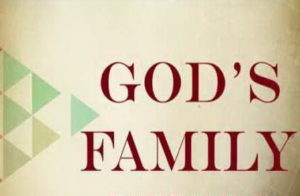 First Reading Exodus 14:21-15:1
First Reading Exodus 14:21-15:1Moses stretched out his hand over the sea. The Lord drove back the sea with a strong easterly wind all night, and he made dry land of the sea. The waters parted and the sons of Israel went on dry ground right into the sea, walls of water to right and to left of them. The Egyptians gave chase: after them they went, right into the sea, all Pharaoh’s horses, his chariots, and his horsemen. In the morning watch, the Lord looked down on the army of the Egyptians from the pillar of fire and of cloud, and threw the army into confusion. He so clogged their chariot wheels that they could scarcely make headway. ‘Let us flee from the Israelites,’ the Egyptians cried. ‘The Lord is fighting for them against the Egyptians!’ ‘Stretch out your hand over the sea,’ the Lord said to Moses, ‘that the waters may flow back on the Egyptians and their chariots and their horsemen.’ Moses stretched out his hand over the sea and, as day broke, the sea returned to its bed. The fleeing Egyptians marched right into it, and the Lord overthrew the Egyptians in the very middle of the sea. The returning waters overwhelmed the chariots and the horsemen of Pharaoh’s whole army, which had followed the Israelites into the sea; not a single one of them was left. But the sons of Israel had marched through the sea on dry ground, walls of water to right and to left of them. That day, the Lord rescued Israel from the Egyptians, and Israel saw the Egyptians lying dead on the shore. Israel witnessed the great act that the Lord had performed against the Egyptians, and the people venerated the Lord; they put their faith in the Lord and in Moses, his servant.
Jesus was speaking to the crowds when his mother and his brothers appeared; they were standing outside and were anxious to have a word with him. But to the man who told him this Jesus replied, ‘Who is my mother? Who are my brothers?’ And stretching out his hand towards his disciples he said, ‘Here are my mother and my brothers. Anyone who does the will of my Father in heaven, he is my brother and sister and mother.’
On my bed, at night, I sought him whom my heart loves. I sought but did not find him. So I will rise and go through the City; in the streets and in the squares I will seek him whom my heart loves. I sought but did not find him. The watchmen came upon me on their rounds in the City: ‘Have you seen him whom my heart loves?’ Scarcely had I passed them
It was very early on the first day of the week and still dark, when Mary of Magdala came to the tomb. She saw that the stone had been moved away from the tomb and came running to Simon Peter and the other disciple, the one Jesus loved. ‘They have taken the Lord out of the tomb’ she said ‘and we don’t know where they have put him.’ Meanwhile Mary stayed outside near the tomb, weeping. Then, still weeping, she stooped to look inside, and saw two angels in white sitting where the body of Jesus had been, one at the head, the other at the feet. They said, ‘Woman, why are you weeping?’ ‘They have taken my Lord away’ she replied ‘and I don’t know where they have put him.’ As she said this she turned round and saw Jesus standing there, though she did not recognise him. Jesus said, ‘Woman, why are you weeping? Who are you looking for?’ Supposing him to be the gardener, she said, ‘Sir, if you have taken him away, tell me where you have put him, and I will go and remove him.’ Jesus said, ‘Mary!’ She knew him then and said to him in Hebrew, ‘Rabbuni!’ – which means Master. Jesus said to her, ‘Do not cling to me, because I have not yet ascended to the Father. But go and find the brothers, and tell them: I am ascending to my Father and your Father, to my God and your God.’ So Mary of Magdala went and told the disciples that she had seen the Lord and that he had said these things to her.
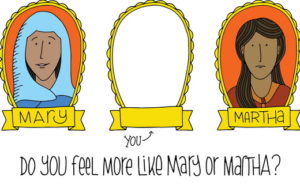 First Reading Genesis 18:1-10
First Reading Genesis 18:1-10The Lord appeared to Abraham at the Oak of Mamre while he was sitting by the entrance of the tent during the hottest part of the day. He looked up, and there he saw three men standing near him. As soon as he saw them he ran from the entrance of the tent to meet them, and bowed to the ground. ‘My lord,’ he said ‘I beg you, if I find favour with you, kindly do not pass your servant by. A little water shall be brought; you shall wash your feet and lie down under the tree. Let me fetch a little bread and you shall refresh yourselves before going further. That is why you have come in your servant’s direction.’ They replied, ‘Do as you say.’ Abraham hastened to the tent to find Sarah.’ ‘Hurry,’ he said ‘knead three bushels of flour and make loaves.’ Then running to the cattle Abraham took a fine and tender calf and gave it to the servant, who hurried to prepare it. Then taking cream, milk and the calf he had prepared, he laid all before them, and they ate while he remained standing near them under the tree.
Jesus came to a village, and a woman named Martha welcomed him into her house. She had a sister called Mary, who sat down at the Lord’s feet and listened to him speaking. Now Martha who was distracted with all the serving said, ‘Lord, do you not care that my sister is leaving me to do the serving all by myself? Please tell her to help me.’ But the Lord answered: ‘Martha, Martha,’ he said ‘you worry and fret about so many things, and yet few are needed, indeed only one. It is Mary who has chosen the better part; it is not to be taken from her.’
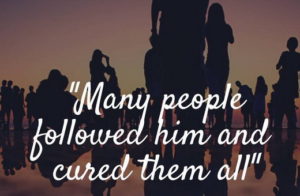 First Reading Exodus 12:37-42
First Reading Exodus 12:37-42 The Pharisees went out and began to plot against Jesus, discussing how to destroy him. Jesus knew this and withdrew from the district. Many followed him and he cured them all, but warned them not to make him known. This was to fulfil the prophecy of Isaiah: Here is my servant whom I have chosen, my beloved, the favourite of my soul. I will endow him with my spirit, and he will proclaim the true faith to the nations. He will not brawl or shout, nor will anyone hear his voice in the streets. He will not break the crushed reed, nor put out the smouldering wick till he has led the truth to victory: in his name the nations will put their hope.
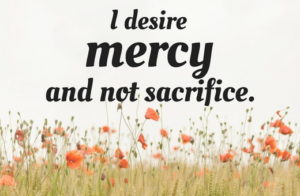 First Reading Exodus 11:10-12:14
First Reading Exodus 11:10-12:14Moses and Aaron worked many wonders in the presence of Pharaoh. But the Lord made Pharaoh’s heart stubborn, and he did not let the sons of Israel leave his country. The Lord said to Moses and Aaron in the land of Egypt:
Jesus took a walk one sabbath day through the cornfields. His disciples were hungry and began to pick ears of corn and eat them. The Pharisees noticed it and said to him, ‘Look, your disciples are doing something that is forbidden on the sabbath.’ But he said to them, ‘Have you not read what David did when he and his followers were hungry – how he went into the house of God and how they ate the loaves of offering which neither he nor his followers were allowed to eat, but which were for the priests alone? Or again, have you not read in the Law that on the sabbath day the Temple priests break the sabbath without being blamed for it? Now here, I tell you, is something greater than the Temple. And if you had understood the meaning of the words: What I want is mercy, not sacrifice, you would not have condemned the blameless. For the Son of Man is master of the sabbath.’
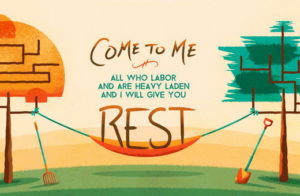 First Reading Exodus 3:13-20
First Reading Exodus 3:13-20Moses, hearing the voice of God coming from the middle of the bush, said to him, ‘I am to go, then, to the sons of Israel and say to them, “The God of your fathers has sent me to you.” But if they ask me what his name is, what am I to tell them?’ And God said to Moses, ‘I Am who I Am. This’ he added ‘is what you must say to the sons of Israel: “I Am has sent me to you.”’ And God also said to Moses, ‘You are to say to the sons of Israel: “The Lord, the God of your fathers, the God of Abraham, the God of Isaac, and the God of Jacob, has sent me to you.” This is my name for all time; by this name I shall be invoked for all generations to come.
Jesus said, ‘Come to me, all you who labour and are overburdened, and I will give you rest. Shoulder my yoke and learn from me, for I am gentle and humble in heart, and you will find rest for your souls. Yes, my yoke is easy and my burden light.’
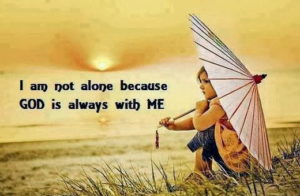 First Reading Exodus 3:1-6,9-12
First Reading Exodus 3:1-6,9-12Moses was looking after the flock of Jethro, his father-in-law, priest of Midian. He led his flock to the far side of the wilderness and came to Horeb, the mountain of God. There the angel of the Lord appeared to him in the shape of a flame of fire, coming from the middle of a bush. Moses looked; there was the bush blazing but it was not being burnt up. ‘I must go and look at this strange sight,’ Moses said, ‘and see why the bush is not burnt.’ Now the Lord saw him go forward to look, and God called to him from the middle of the bush. ‘Moses, Moses!’ he said. ‘Here I am,’ Moses answered. ‘Come no nearer,’ he said. ‘Take off your shoes, for the place on which you stand is holy ground. I am the God of your fathers,’ he said, ‘the God of Abraham, the God of Isaac and the God of Jacob.’ At this Moses covered his face, afraid to look at God. And the Lord said, ‘The cry of the sons of Israel has come to me, and I have witnessed the way in which the Egyptians oppress them, so come, I send you to Pharaoh to bring the sons of Israel, my people, out of Egypt.’
Jesus exclaimed, ‘I bless you, Father, Lord of heaven and of earth, for hiding these things from the learned and the clever and revealing them to mere children. Yes, Father, for that is what it pleased you to do. Everything has been entrusted to me by my Father; and no one knows the Son except the Father, just as no one knows the Father except the Son and those to whom the Son chooses to reveal him.’
 First Reading Exodus 2:1-15
First Reading Exodus 2:1-15There was a man of the tribe of Levi who had taken a woman of Levi as his wife. She conceived and gave birth to a son and, seeing what a fine child he was, she kept him hidden for three months. When she could hide him no longer, she got a papyrus basket for him; coating it with bitumen and pitch, she put the child inside and laid it among the reeds at the river’s edge. His sister stood some distance away to see what would happen to him. Now Pharaoh’s daughter went down to bathe in the river, and the girls attending her were walking along by the riverside. Among the reeds she noticed the basket, and she sent her maid to fetch it. She opened it and looked, and saw a baby boy, crying; and she was sorry for him. ‘This is a child of one of the Hebrews’ she said. Then the child’s sister said to Pharaoh’s daughter, ‘Shall I go and find you a nurse among the Hebrew women to suckle the child for you?’ ‘Yes, go’ Pharaoh’s daughter said to her; and the girl went off to find the baby’s own mother. To her the daughter of Pharaoh said, ‘Take this child away and suckle it for me. I will see you are paid.’ So the woman took the child and suckled it. When the child grew up, she brought him to Pharaoh’s daughter who treated him like a son; she named him Moses because, she said, ‘I drew him out of the water.’
Jesus began to reproach the towns in which most of his miracles had been worked, because they refused to repent. ‘Alas for you, Chorazin! Alas for you, Bethsaida! For if the miracles done in you had been done in Tyre and Sidon, they would have repented long ago in sackcloth and ashes. And still, I tell you that it will not go as hard on Judgement day with Tyre and Sidon as with you. And as for you, Capernaum, did you want to be exalted as high as heaven? You shall be thrown down to hell. For if the miracles done in you had been done in Sodom, it would have been standing yet. And still, I tell you that it will not go as hard with the land of Sodom on Judgement day as with you.’
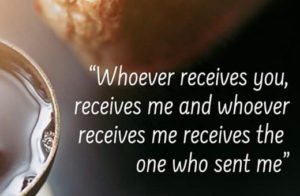 First Reading Exodus 1:8-14,22
First Reading Exodus 1:8-14,22There came to power in Egypt a new king who knew nothing of Joseph. ‘Look,’ he said to his subjects ‘these people, the sons of Israel, have become so numerous and strong that they are a threat to us. We must be prudent and take steps against their increasing any further, or if war should break out, they might add to the number of our enemies. They might take arms against us and so escape out of the country.’ Accordingly they put slave-drivers over the Israelites to wear them down under heavy loads. In this way they built the store-cities of Pithom and Rameses for Pharaoh. But the more they were crushed, the more they increased and spread, and men came to dread the sons of Israel. The Egyptians forced the sons of Israel into slavery, and made their lives unbearable with hard labour, work with clay and with brick, all kinds of work in the fields; they forced on them every kind of labour.
Jesus instructed the Twelve as follows: ‘Do not suppose that I have come to bring peace to the earth: it is not peace I have come to bring, but a sword. For I have come to set a man against his father, a daughter against her mother, a daughter-in-law against her mother-in-law. A man’s enemies will be those of his own household. ‘Anyone who prefers father or mother to me is not worthy of me. Anyone who prefers son or daughter to me is not worthy of me. Anyone who does not take his cross and follow in my footsteps is not worthy of me. Anyone who finds his life will lose it; anyone who loses his life for my sake will find it. ‘Anyone who welcomes you welcomes me; and those who welcome me welcome the one who sent me. ‘Anyone who welcomes a prophet will have a prophet’s reward; and anyone who welcomes a holy man will have a holy man’s reward. ‘If anyone gives so much as a cup of cold water to one of these little ones because he is a disciple, then I tell you solemnly, he will most certainly not lose his reward.’ When Jesus had finished instructing his twelve disciples he moved on from there to teach and preach in their towns.
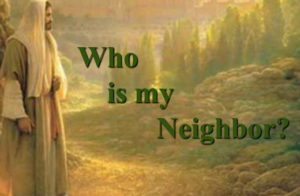 First Reading Deuteronomy 30:10-14
First Reading Deuteronomy 30:10-14Moses said to the people: ‘Obey the voice of the Lord your God, keeping those commandments and laws of his that are written in the Book of this Law, and you shall return to the Lord your God with all your heart and soul.
Christ Jesus is the image of the unseen God and the first-born of all creation, for in him were created all things in heaven and on earth: everything visible and everything invisible, Thrones, Dominations, Sovereignties, Powers – all things were created through him and for him. Before anything was created, he existed, and he holds all things in unity. Now the Church is his body, he is its head. As he is the Beginning, he was first to be born from the dead, so that he should be first in every way; because God wanted all perfection to be found in him and all things to be reconciled through him and for him, everything in heaven and everything on earth, when he made peace
There was a lawyer who, to disconcert Jesus, stood up and said to him, ‘Master, what must I do to inherit eternal life?’ He said to him, ‘What is written in the Law? What do you read there?’ He replied, ‘You must love the Lord your God with all your heart, with all your soul, with all your strength, and with all your mind, and your neighbour as yourself.’ ‘You have answered right,’ said Jesus ‘do this and life is yours.’ But the man was anxious to justify himself and said to Jesus, ‘And who is my neighbour?’ Jesus replied, ‘A man was once on his way down from Jerusalem to Jericho and fell into the hands of brigands; they took all he had, beat him and then made off, leaving him half dead. Now a priest happened to be travelling down the same road, but when he saw the man, he passed by on the other side. In the same way a Levite who came to the place saw him, and passed by on the other side. But a Samaritan traveller who came upon him was moved with compassion when he saw him. He went up and bandaged his wounds, pouring oil and wine on them. He then lifted him on to his own mount, carried him to the inn and looked after him. Next day, he took out two denarii and handed them to the innkeeper. “Look after him,” he said “and on my way back I will make good any extra expense you have.” Which of these three, do you think, proved himself a neighbour to the man who fell into the brigands‘ hands?’ ‘The one who took pity on him’ he replied. Jesus said to him, ‘Go, and do the same yourself.’
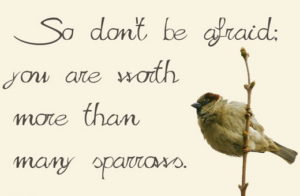 First Reading Genesis 49:29-33,50:15-26
First Reading Genesis 49:29-33,50:15-26Jacob gave his sons these instructions, ‘I am about to be gathered to my people. Bury me near my fathers, in the cave that is in the field of Ephron the Hittite, in the cave in the field at Machpelah, opposite Mamre, in the land of Canaan, which Abraham bought from Ephron the Hittite as a burial-plot. There Abraham was buried and his wife Sarah. There Isaac was buried and his wife Rebekah. There I buried Leah. I mean the field and the cave in it that were bought from the sons of Heth.’ When Jacob had finished giving his instructions to his sons, he drew his feet up into the bed, and breathing his last was gathered to his people. Seeing that their father was dead, Joseph’s brothers said, ‘What if Joseph intends to treat us as enemies and repay us in full for all the wrong we did him?’ So they sent this message to Joseph: ‘Before your father died he gave us this order: “You must say to Joseph: Oh forgive your brothers their crime and their sin and all the wrong they did you.” Now therefore, we beg you, forgive the crime of the servants of your father’s God.’ Joseph wept at the message they sent to him. His brothers came themselves and fell down before him. ‘We present ourselves before you’ they said ‘as your slaves.’ But Joseph answered them, ‘Do not be afraid; is it for me to put myself in God’s place? The evil you planned to do me has by God’s design been turned to good, that he might bring about, as indeed he has, the deliverance of a numerous people. So you need not be afraid; I myself will provide for you and your dependants.’ In this way he reassured them with words that touched their hearts. So Joseph stayed in Egypt with his father’s family; and Joseph lived a hundred and ten years. Joseph saw the third generation of Ephraim’s children, as also the children of Machir, Manasseh’s son, who were born on Joseph’s lap. At length Joseph said to his brothers, ‘I am about to die; but God will be sure to remember you kindly and take you back from this country to the land that he promised on oath to Abraham, Isaac and Jacob.’ And Joseph made Israel’s sons swear an oath, ‘When God remembers you with kindness be sure to take my bones from here.’
Jesus instructed the Twelve as follows: ‘The disciple is not superior to his teacher, nor the slave to his master. It is enough for the disciple that he should grow to be like his teacher, and the slave like his master. If they have called the master of the house Beelzebul, what will they not say of his household? ‘Do not be afraid of them therefore. For everything that is now covered will be uncovered, and everything now hidden will be made clear. What I say to you in the dark, tell in the daylight; what you hear in whispers, proclaim from the housetops. ‘Do not be afraid of those who kill the body but cannot kill the soul; fear him rather who can destroy both body and soul in hell. Can you not buy two sparrows for a penny? And yet not one falls to the ground without your Father knowing. Why, every hair on your head has been counted. So there is no need to be afraid; you are worth more than hundreds of sparrows. ‘So if anyone declares himself for me in the presence of men, I will declare myself for him in the presence of my Father in heaven. But the one who disowns me in the presence of men, I will disown in the presence of my Father in heaven.’
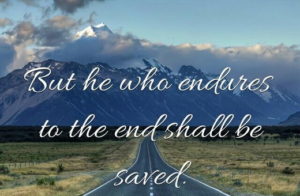 First Reading Genesis 46:1-7,28-30
First Reading Genesis 46:1-7,28-30Israel left Canaan with his possessions, and reached Beersheba. There he offered sacrifices to the God of his father Isaac. God spoke to Israel in a vision at night, ‘Jacob, Jacob’, he said. ‘I am here’, he replied. ‘I am God, the God of your father’, he continued. ‘Do not be afraid of going down to Egypt, for I will make you a great nation there. I myself will go down to Egypt with you. I myself will bring you back again, and Joseph’s hand shall close your eyes.’ Then Jacob left Beersheba. Israel’s sons conveyed their father Jacob, their little children and their wives in the waggons Pharaoh had sent to fetch him. Taking their livestock and all that they had acquired in the land of Canaan, they went to Egypt, Jacob and all his family with him: his sons and his grandsons, his daughters and his grand-daughters, in a word, all his children he took with him to Egypt.
Jesus instructed the Twelve as follows: ‘Remember, I am sending you out like sheep among wolves; so be cunning as serpents and yet as harmless as doves. ‘Beware of men: they will hand you over to sanhedrins and scourge you in their synagogues. You will be dragged before governors and kings for my sake, to bear witness before them and the pagans. But when they hand you over, do not worry about how to speak or what to say; what you are to say will be given to you when the time comes; because it is not you who will be speaking; the Spirit of your Father will be speaking in you. ‘Brother will betray brother to death, and the father his child; children will rise against their parents and have them put to death. You will be hated by all men on account of my name; but the man who stands firm to the end will be saved. If they persecute you in one town, take refuge in the next; and if they persecute you in that, take refuge in another. I tell you solemnly, you will not have gone the round of the towns of Israel before the Son of Man comes.’
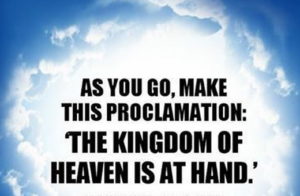 First Reading Genesis 44:18-21,23-29,45:1-5
First Reading Genesis 44:18-21,23-29,45:1-5Judah went up to Joseph and said, ‘May it please my lord, let your servant have a word privately with my lord. Do not be angry with your servant, for you are like Pharaoh himself. My lord questioned his servants, “Have you father or brother?” And we said to my lord, “We have an old father, and a younger brother born of his old age. His brother is dead, so he is the only one left of his mother, and his father loves him.” Then you said to your servants, “Bring him down to me that my eyes may look on him.” But you said to your servants, “If your youngest brother does not come down with you, you will not be admitted to my presence again.” When we went back to your servant my father, we repeated to him what my lord had said. So when our father said, “Go back and buy us a little food,” we said, “We cannot go down. If our youngest brother is with us, we will go down, for we cannot be admitted to the man’s presence unless our youngest brother is with us.” So your servant our father said to us, “You know that my wife bore me two children. When one left me, I said that he must have been torn to pieces. And I have not seen him to this day. If you take this one from me too and any harm comes to him, you will send me down to Sheol with my white head bowed in misery.” If I go to your servant my father now, and we have not the boy with us, he will die as soon as he sees the boy is not with us, for his heart is bound up with him. Then your servants will have sent your servant our father down to Sheol with his white head bowed in grief.’ Then Joseph could not control his feelings in front of all his retainers, and he exclaimed, ‘Let everyone leave me.’ No one therefore was present with him while Joseph made himself known to his brothers, but he wept so loudly that all the Egyptians heard, and the news reached Pharaoh’s palace.
Jesus instructed the Twelve as follows: ‘As you go, proclaim that the kingdom of heaven is close at hand. Cure the sick, raise the dead, cleanse the lepers, cast out devils. You received without charge, give without charge. Provide yourselves with no gold or silver, not even with a few coppers for your purses, with no haversack for the journey or spare tunic or footwear or a staff, for the workman deserves his keep. ‘Whatever town or village you go into, ask for someone trustworthy and stay with him until you leave. As you enter his house, salute it, and if the house deserves it, let your peace descend upon it; if it does not, let your peace come back to you. And if anyone does not welcome you or listen to what you have to say, as you walk out of the house or town shake the dust from your feet. I tell you solemnly, on the day of Judgement it will not go as hard with the land of Sodom and Gomorrah as with that town.’
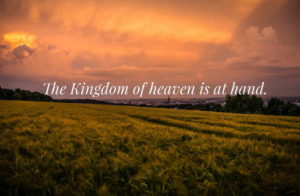 First Reading Genesis 41:55-57,42:5-7,17-24
First Reading Genesis 41:55-57,42:5-7,17-24When the whole country of Egypt began to feel the famine, the people cried out to Pharaoh for bread. But Pharaoh told all the Egyptians, ‘Go to Joseph and do what he tells you.’ There was famine all over the world. Then Joseph opened all the granaries and sold grain to the Egyptians. The famine grew worse in the land of Egypt. People came to Egypt from all over the world to buy grain from Joseph, for the famine had grown severe throughout the world. Israel’s sons with others making the same journey went to buy grain, for there was famine in the land of Canaan. It was Joseph, as the man in authority over the country, who sold the grain to all comers. So Joseph’s brothers went and bowed down before him, their faces touching the ground. When Joseph saw his brothers he recognised them. But he did not make himself known to them, and he spoke harshly to them. Then he kept them all in custody for three days.
Jesus summoned his twelve disciples, and gave them authority over unclean spirits with power to cast them out and to cure all kinds of diseases and sickness. These are the names of the twelve apostles: first, Simon who is called Peter, and his brother Andrew; James the son of Zebedee, and his brother John; Philip and Bartholomew; Thomas, and Matthew the tax collector; James the son of Alphaeus, and Thaddaeus; Simon the Zealot and Judas Iscariot, the one who was to betray him. These twelve Jesus sent out, instructing them as follows: ‘Do not turn your steps to pagan territory, and do not enter any Samaritan town; go rather to the lost sheep of the House of Israel. And as you go, proclaim that the kingdom of heaven is close at hand.’
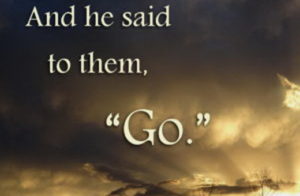 First Reading Genesis 32:23-33
First Reading Genesis 32:23-33Jacob rose, and taking his two wives and his two slave-girls and his eleven children he crossed the ford of the Jabbok. He took them and sent them across the stream and sent all his possessions over too. And Jacob was left alone. And there was one that wrestled with him until daybreak who, seeing that he could not master him, struck him in the socket of his hip, and Jacob’s hip was dislocated as he wrestled with him. He said, ‘Let me go, for day is breaking.’ But Jacob answered, ‘I will not let you go unless you bless me.’ He then asked, ‘What is your name?’ ‘Jacob’, he replied. He said, ‘Your name shall no longer be Jacob, but Israel, because you have been strong against God, you shall prevail against men.’ Jacob then made this request, ‘I beg you, tell me your name’, but he replied, ‘Why do you ask my name?’ And he blessed him there.
A man was brought to Jesus, a dumb demoniac. And when the devil was cast out, the dumb man spoke and the people were amazed. ‘Nothing like this has ever been seen in Israel’ they said. But the Pharisees said, ‘It is through the prince of devils that he casts out devils.’ Jesus made a tour through all the towns and villages, teaching in their synagogues, proclaiming the Good News of the kingdom and curing all kinds of diseases and sickness. And when he saw the crowds he felt sorry for them because they were harassed and dejected, like sheep without a shepherd. Then he said to his disciples, ‘The harvest is rich but the labourers are few, so ask the Lord of the harvest to send labourers to his harvest.’
 First Reading Genesis 28:10-22
First Reading Genesis 28:10-22Jacob left Beersheba and set out for Haran. When he had reached a certain place he passed the night there, since the sun had set. Taking one of the stones to be found at that place, he made it his pillow and lay down where he was. He had a dream: a ladder was there, standing on the ground with its top reaching to heaven; and there were angels of God going up it and coming down. And the Lord was there, standing over him, saying, ‘I am the Lord, the God of Abraham your father, and the God of Isaac. I will give to you and your descendants the land on which you are lying. Your descendants shall be like the specks of dust on the ground; you shall spread to the west and the east, to the north and the south, and all the tribes of the earth shall bless themselves by you and your descendants. Be sure that I am with you; I will keep you safe wherever you go, and bring you back to this land, for I will not desert you before I have done all that I have promised you.’ Then Jacob awoke from his sleep and said, ‘Truly, the Lord is in this place and I never knew it!’ He was afraid and said, ‘How awe-inspiring this place is! This is nothing less than a house of God; this is the gate of heaven!’ Rising early in the morning, Jacob took the stone he had used for his pillow, and set it up as a monument, pouring oil over the top of it. He named the place Bethel, but before that the town was called Luz.
While Jesus was speaking, up came one of the officials, who bowed low in front of him and said, ‘My daughter has just died, but come and lay your hand on her and her life will be saved.’ Jesus rose and, with his disciples, followed him. Then from behind him came a woman, who had suffered from a haemorrhage for twelve years, and she touched the fringe of his cloak, for she said to herself, ‘If I can only touch his cloak I shall be well again.’ Jesus turned round and saw her; and he said to her, ‘Courage, my daughter, your faith has restored you to health.’ And from that moment the woman was well again. When Jesus reached the official’s house and saw the flute-players, with the crowd making a commotion he said, ‘Get out of here; the little girl is not dead, she is asleep.’ And they laughed at him. But when the people had been turned out he went inside and took the little girl by the hand; and she stood up. And the news spread all round the countryside.
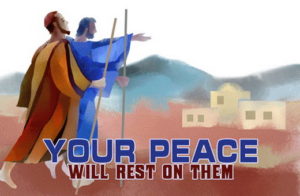 First Reading Isaiah 66:10-14
First Reading Isaiah 66:10-14Rejoice, Jerusalem, be glad for her, all you who love her! Rejoice, rejoice for her, all you who mourned her! That you may be suckled, filled, from her consoling breast, that you may savour with delight her glorious breasts. For thus says the Lord: Now towards her I send flowing peace, like a river, and like a stream in spate the glory of the nations. At her breast will her nurslings be carried and fondled in her lap. Like a son comforted by his mother will I comfort you. And by Jerusalem you will be comforted. At the sight your heart will rejoice, and your bones flourish like the grass.
The only thing I can boast about is the cross of our Lord Jesus Christ, through whom the world is crucified to me, and I to the world. It does not matter if a person is circumcised or not; what matters is for him to become an altogether new creature. Peace and mercy to all who follow this rule, who form the Israel of God.
The Lord appointed seventy-two others and sent them out ahead of him, in pairs, to all the towns and places he himself was to visit. He said to them, ‘The harvest is rich but the labourers are few, so ask the Lord of the harvest to send labourers to his harvest. Start off now, but remember, I am sending you out like lambs among wolves. Carry no purse, no haversack, no sandals. Salute no one on the road. ‘Whatever house you go into, let your first words be, “Peace to this house!” And if a man of peace lives there, your peace will go and rest on him; if not, it will come back to you. Stay in the same house, taking what food and drink they have to offer, for the labourer deserves his wages; do not move from house to house. ‘Whenever you go into a town where they make you welcome, eat what is set before you. Cure those in it who are sick, and say, “The kingdom of God is very near to you.” But whenever you enter a town and they do not make you welcome, go out into its streets and say, “We wipe off the very dust of your town that clings to our feet, and leave it with you. Yet be sure of this: the kingdom of God is very near.” I tell you, on that day it will not go as hard with Sodom as with that town.’ The seventy-two came back rejoicing. ‘Lord,’ they said ‘even the devils submit to us when we use your name.’ He said to them, ‘I watched Satan fall like lightning from heaven. Yes, I have given you power to tread underfoot serpents and scorpions and the whole strength of the enemy; nothing shall ever hurt you. Yet do not rejoice that the spirits submit to you; rejoice rather that your names are written in heaven.’
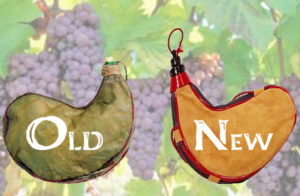 First Reading Genesis 27:1-5,15-29
First Reading Genesis 27:1-5,15-29Isaac had grown old, and his eyes were so weak that he could no longer see. He summoned his elder son Esau, ‘My son!’ he said to him, and the latter answered, ‘I am here.’ Then he said, ‘See, I am old and do not know when I may die. Now take your weapons, your quiver and bow; go out into the country and hunt me some game. Make me the kind of savoury I like and bring it to me, so that I may eat, and give you my blessing before I die.’ Rebekah happened to be listening while Isaac was talking to his son Esau. So when Esau went into the country to hunt game for his father, Rebekah took her elder son Esau’s best clothes, which she had in the house, and dressed her younger son Jacob in them, covering his arms and the smooth part of his neck with the skins of the kids. Then she handed the savoury and the bread she had made to her son Jacob. He presented himself before his father and said, ‘Father.’ ‘I am here;’ was the reply ‘who are you, my son?’ Jacob said to his father, ‘I am Esau your first-born; I have done as you told me. Please get up and take your place and eat the game I have brought and then give me your blessing.’ Isaac said to his son, ‘How quickly you found it, my son!’ ‘It was the Lord your God’ he answered ‘who put it in my path.’ Isaac said to Jacob, ‘Come here, then, and let me touch you, my son, to know if you are my son Esau or not.’ Jacob came close to his father Isaac, who touched him and said, ‘The voice is Jacob’s voice but the arms are the arms of Esau!’ He did not recognise him, for his arms were hairy like his brother Esau’s, and so he blessed him. He said, ‘Are you really my son Esau?’ And he replied, ‘I am.’ Isaac said, ‘Bring it here that I may eat the game my son has brought, and so may give you my blessing.’ He brought it to him and he ate; he offered him wine, and he drank. His father Isaac said to him, ‘Come closer, and kiss me, my son.’ He went closer and kissed his father, who smelled the smell of his clothes. He blessed him, saying: ‘Yes, the smell of my son is like the smell of a fertile field blessed by the Lord. May God give you dew from heaven, and the richness of the earth, abundance of grain and wine! May nations serve you and peoples bow down before you! Be master of your brothers; may the sons of your mother bow down before you! Cursed be he who curses you;
John’s disciples came to him and said, ‘Why is it that we and the Pharisees fast, but your disciples do not?’ Jesus replied, ‘Surely the bridegroom’s attendants would never think of mourning as long as the bridegroom is still with them? But the time will come for the bridegroom to be taken away from them, and then they will fast. No one puts a piece of unshrunken cloth on to an old cloak, because the patch pulls away from the cloak and the tear gets worse. Nor do people put new wine into old wineskins; if they do, the skins burst, the wine runs out, and the skins are lost. No; they put new wine into fresh skins and both are preserved.’
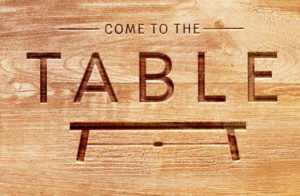 First Reading Genesis 23:1-4,19,24:1-8,62-67
First Reading Genesis 23:1-4,19,24:1-8,62-67The length of Sarah’s life was a hundred and twenty-seven years. She died at Kiriath-arba, or Hebron, in the land of Canaan, and Abraham went in to mourn and grieve for her. Then leaving his dead, Abraham spoke to the sons of Heth: ‘I am a stranger and a settler among you,’ he said. ‘Let me own a burial-plot among you, so that I may take my dead wife and bury her.’ After this, Abraham buried his wife Sarah in the cave of the field of Machpelah opposite Mamre, in the country of Canaan. By now Abraham was an old man well on in years, and the Lord had blessed him in every way. Abraham said to the eldest servant of his household, the steward of all his property, ‘Place your hand under my thigh, I would have you swear by the Lord, God of heaven and God of earth, that you will not choose a wife for my son from the daughters of the Canaanites among whom I live. Instead, go to my own land and my own kinsfolk to choose a wife for my son Isaac.’ The servant asked him, ‘What if the woman does not want to come with me to this country? Must I take your son back to the country from which you came?’ Abraham answered, ‘On no account take my son back there. The Lord, God of heaven and God of earth, took me from my father’s home, and from the land of my kinsfolk, and he swore to me that he would give this country to my descendants. He will now send his angel ahead of you, so that you may choose a wife for my son there. And if the woman does not want to come with you, you will be free from this oath of mine. Only do not take my son back there.’
As Jesus was walking on, he saw a man named Matthew sitting by the customs house, and he said to him, ‘Follow me.’ And he got up and followed him. While he was at dinner in the house it happened that a number of tax collectors and sinners came to sit at the table with Jesus and his disciples. When the Pharisees saw this, they said to his disciples, ‘Why does your master eat with tax collectors and sinners?’ When he heard this he replied, ‘It is not the healthy who need the doctor, but the sick. Go and learn the meaning of the words: What I want is mercy, not sacrifice. And indeed I did not come to call the virtuous, but sinners.’
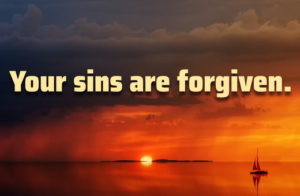 First Reading Genesis 22:1-19
First Reading Genesis 22:1-19God put Abraham to the test. ‘Abraham, Abraham’ he called. ‘Here I am’ he replied. ‘Take your son,’ God said ‘your only child Isaac, whom you love, and go to the land of Moriah. There you shall offer him as a burnt offering, on a mountain I will point out to you.’ Rising early next morning Abraham saddled his ass and took with him two of his servants and his son Isaac. He chopped wood for the burnt offering and started on his journey to the place God had pointed out to him. On the third day Abraham looked up and saw the place in the distance. Then Abraham said to his servants, ‘Stay here with the donkey. The boy and I will go over there; we will worship and come back to you.’ Abraham took the wood for the burnt offering, loaded it on Isaac, and carried in his own hands the fire and the knife. Then the two of them set out together. Isaac spoke to his father Abraham, ‘Father’ he said. ‘Yes, my son’ he replied. ‘Look,’ he said ‘here are the fire and the wood, but where is the lamb for the burnt offering?’ Abraham answered, ‘My son, God himself will provide the lamb for the burnt offering.’ Then the two of them went on together. When they arrived at the place God had pointed out to him, Abraham built an altar there, and arranged the wood. Then he bound his son Isaac and put him on the altar on top of the wood. Abraham stretched out his hand and seized the knife to kill his son. But the angel of the Lord called to him from heaven. ‘Abraham, Abraham’ he said. ‘I am here’ he replied. ‘Do not raise your hand against the boy’ the angel said. ‘Do not harm him, for now I know you fear God. You have not refused me your son, your only son.’ Then looking up, Abraham saw a ram caught by its horns in a bush. Abraham took the ram and offered it as a burnt-offering in place of his son. Abraham called this place ‘The Lord Provides’, and hence the saying today: On the mountain the Lord provides. The angel of the Lord called Abraham a second time from heaven. ‘I swear by my own self – it is the Lord who speaks – because you have done this, because you have not refused me your son, your only son, I will shower blessings on you, I will make your descendants as many as the stars of heaven and the grains of sand on the seashore. Your descendants shall gain possession of the gates of their enemies. All the nations of the earth shall bless themselves by your descendants, as a reward for your obedience.’
Jesus got in the boat, crossed the water and came to his own town. Then some people appeared, bringing him a paralytic stretched out on a bed. Seeing their faith, Jesus said to the paralytic, ‘Courage, my child, your sins are forgiven.’ And at this some scribes said to themselves, ‘This man is blaspheming.’ Knowing what was in their minds Jesus said, ‘Why do you have such wicked thoughts in your hearts? Now, which of these is easier to say, “Your sins are forgiven,” or to say, “Get up and walk”? But to prove to you that the Son of Man has authority on earth to forgive sins,’ – he said to the paralytic – ‘get up, and pick up your bed and go off home.’ And the man got up and went home. A feeling of awe came over the crowd when they saw this, and they praised God for giving such power to men.
 First Reading Ephesians 2:19-22
First Reading Ephesians 2:19-22Thomas, called the Twin, who was one of the Twelve, was not with them when Jesus came. When the disciples said, ‘We have seen the Lord’, he answered, ‘Unless I see the holes that the nails made in his hands and can put my finger into the holes they made, and unless I can put my hand into his side, I refuse to believe.’ Eight days later the disciples were in the house again and Thomas was with them. The doors were closed, but Jesus came in and stood among them. ‘Peace be with you’ he said. Then he spoke to Thomas, ‘Put your finger here; look, here are my hands. Give me your hand; put it into my side. Doubt no longer but believe.’ Thomas replied, ‘My Lord and my God!’ Jesus said to him: ‘You believe because you can see me. Happy are those who have not seen and yet believe.’
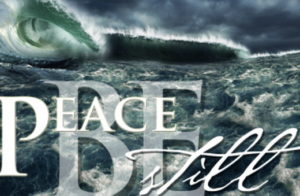 First Reading Genesis 19:15-29
First Reading Genesis 19:15-29The angels urged Lot, ‘Come, take your wife and these two daughters of yours, or you will be overwhelmed in the punishment of the town.’ And as he hesitated, the men took him by the hand, and his wife and his two daughters, because of the pity the Lord felt for him. They led him out and left him outside the town. As they were leading him out he said, ‘Run for your life. Neither look behind you nor stop anywhere on the plain. Make for the hills if you would not be overwhelmed.’ ‘No, I beg you, my lord,’ Lot said to them ‘your servant has won your favour and you have shown great kindness to me in saving my life. But I could not reach the hills before this calamity overtook me, and death with it. The town over there is near enough to flee to, and is a little one. Let me make for that – is it not little? – and my life will be saved.’ He answered, ‘I grant you this favour too, and will not destroy the town you speak of. Hurry, escape to it, for I can do nothing until you reach it.’ That is why the town is named Zoar. As the sun rose over the land and Lot entered Zoar, the Lord rained on Sodom and Gomorrah brimstone and fire from the Lord. He overthrew these towns and the whole plain, with all the inhabitants of the towns, and everything that grew there. But the wife of Lot looked back, and was turned into a pillar of salt. Rising early in the morning Abraham went to the place where he had stood before the Lord, and looking towards Sodom and Gomorrah, and across all the plain, he saw the smoke rising from the land, like smoke from a furnace.
Jesus got into the boat followed by his disciples. Without warning a storm broke over the lake, so violent that the waves were breaking right over the boat. But he was asleep. So they went to him and woke him saying, ‘Save us, Lord, we are going down!’ And he said to them, ‘Why are you so frightened, you men of little faith?’ And with that he stood up and rebuked the winds and the sea; and all was calm again. The men were astounded and said, ‘Whatever kind of man is this? Even the winds and the sea obey him.’
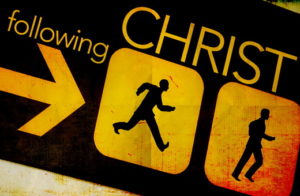 First Reading Genesis 18:16-33
First Reading Genesis 18:16-33From Mamre the men set out and arrived within sight of Sodom, with Abraham accompanying them to show them the way. Now the Lord had wondered, ‘Shall I conceal from Abraham what I am going to do, seeing that Abraham will become a great nation with all the nations of the earth blessing themselves by him? For I have singled him out to command his sons and his household after him to maintain the way of the Lord by just and upright living. In this way the Lord will carry out for Abraham what he has promised him.’ Then the Lord said, ‘How great an outcry there is against Sodom and Gomorrah! How grievous is their sin! I propose to go down and see whether or not they have done all that is alleged in the outcry against them that has come up to me. I am determined to know.’ The men left there and went to Sodom while Abraham remained standing before the Lord. Approaching him he said, ‘Are you really going to destroy the just man with the sinner? Perhaps there are fifty just men in the town. Will you really overwhelm them, will you not spare the place for the fifty just men in it? Do not think of doing such a thing: to kill the just man with the sinner, treating just and sinner alike! Do not think of it! Will the judge of the whole earth not administer justice?’ the Lord replied, ‘If at Sodom I find fifty just men in the town, I will spare the whole place because of them.’ Abraham replied, ‘I am bold indeed to speak like this to my Lord, I who am dust and ashes. But perhaps the fifty just men lack five: will you destroy the whole city for five?’ ‘No,’ he replied ‘I will not destroy it if I find forty-five just men there.’ Again Abraham said to him, ‘Perhaps there will only be forty there.’ ‘I will not do it’ he replied ‘for the sake of the forty.’ Abraham said, ‘I trust my Lord will not be angry, but give me leave to speak: perhaps there will only be thirty there.’ ‘I will not do it’ he replied ‘if I find thirty there.’ He said, ‘I am bold indeed to speak like this, but perhaps there will only be twenty there.’ ‘I will not destroy it’ he replied ‘for the sake of the twenty.’ He said, ‘I trust my Lord will not be angry if I speak once more: perhaps there will only be ten.’ ‘I will not destroy it’ he replied ‘for the sake of the ten.’
When Jesus saw the great crowds all about him he gave orders to leave for the other side. One of the scribes then came up and said to him, ‘Master, I will follow you wherever you go.’ Jesus replied, ‘Foxes have holes and the birds of the air have nests, but the Son of Man has nowhere to lay his head.’ Another man, one of his disciples, said to him, ‘Sir, let me go and bury my father first.’ But Jesus replied, ‘Follow me, and leave the dead to bury their dead.’
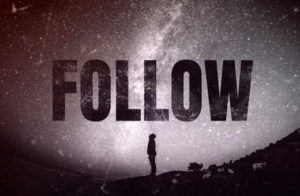 First Reading 1 Kings 19:16,19-21
First Reading 1 Kings 19:16,19-21The Lord said to Elijah, ‘Go, you are to anoint Elisha son of Shaphat, of Abel Meholah, as prophet to succeed you.’
As the time drew near for him to be taken up to heaven, Jesus resolutely took the road for Jerusalem and sent messengers ahead of him. These set out, and they went into a Samaritan village to make preparations for him, but the people would not receive him because he was making for Jerusalem. Seeing this, the disciples James and John said, ‘Lord, do you want us to call down fire from heaven to burn them up?’ But he turned and rebuked them, and they went off to another village. As they travelled along they met a man on the road who said to him, ‘I will follow you wherever you go.’ Jesus answered, ‘Foxes have holes and the birds of the air have nests, but the Son of Man has nowhere to lay his head.’ Another to whom he said, ‘Follow me’, replied, ‘Let me go and bury my father first.’ But he answered, ‘Leave the dead to bury their dead; your duty is to go and spread the news of the kingdom of God.’ Another said, ‘I will follow you, sir, but first let me go and say goodbye to my people at home.’ Jesus said to him, ‘Once the hand is laid on the plough, no one who looks back is fit for the kingdom of God.’
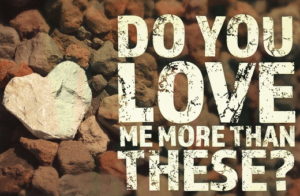 First Reading Acts 3:1-10
First Reading Acts 3:1-10The Good News I preached is not a human message that I was given by men, it is something I learnt only through a revelation of Jesus Christ. You must have heard of my career as a practising Jew, how merciless I was in persecuting the Church of God, how much damage I did to it, how I stood out among other Jews of my generation, and how enthusiastic I was for the traditions of my ancestors.
Jesus showed himself to his disciples, and after they had eaten he said to Simon Peter, ‘Simon son of John, do you love me more than these others do?’ He answered, ‘Yes Lord, you know I love you.’ Jesus said to him, ‘Feed my lambs.’ A second time he said to him, ‘Simon son of John, do you love me?’ He replied, ‘Yes, Lord, you know I love you.’ Jesus said to him, ‘Look after my sheep.’ Then he said to him a third time, ‘Simon son of John, do you love me?’ Peter was upset that he asked him the third time, ‘Do you love me?’ and said, ‘Lord, you know everything; you know I love you.’ Jesus said to him, ‘Feed my sheep.
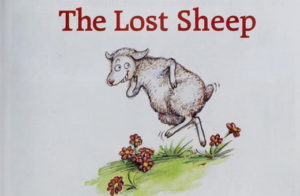 First Reading Ezekiel 34:11-16
First Reading Ezekiel 34:11-16Jesus spoke this parable to the scribes and Pharisees: ‘What man among you with a hundred sheep, losing one, would not leave the ninety-nine in the wilderness and go after the missing one till he found it? And when he found it, would he not joyfully take it on his shoulders and then, when he got home, call together his friends and neighbours? “Rejoice with me,” he would say “I have found my sheep that was lost.” In the same way, I tell you, there will be more rejoicing in heaven over one repentant sinner than over ninety-nine virtuous men who have no need of repentance.’
 First Reading Genesis 16:1-12,15-16
First Reading Genesis 16:1-12,15-16Abram’s wife Sarai had borne him no child, but she had an Egyptian maidservant named Hagar. So Sarai said to Abram, ‘Listen, now! Since the Lord has kept me from having children, go to my slave-girl. Perhaps I shall get children through her.’ Abram agreed to what Sarai had said. Thus after Abram had lived in the land of Canaan for ten years Sarai took Hagar her Egyptian slave-girl and gave her to Abram as his wife. He went to Hagar and she conceived. And once she knew she had conceived, her mistress counted for nothing in her eyes. Then Sarai said to Abram, ‘May this insult to me come home to you! It was I who put my slave-girl into your arms but now she knows that she has conceived, I count for nothing in her eyes. Let the Lord judge between me and you.’ ‘Very well,’ Abram said to Sarai ‘your slave-girl is at your disposal. Treat her as you think fit.’ Sarai accordingly treated her so badly that she ran away from her. The angel of the Lord met her near a spring in the wilderness, the spring that is on the road to Shur. He said, ‘Hagar, slave-girl of Sarai, where have you come from, and where are you going?’ ‘I am running away from my mistress Sarai’ she replied. The angel of the Lord said to her, ‘Go back to your mistress and submit to her.’ The angel of the Lord said to her, ‘I will make your descendants too numerous to be counted.’ Then the angel of the Lord said to her: ‘Now you have conceived, and you will bear a son, and you shall name him Ishmael, for the Lord has heard your cries of distress. A wild-ass of a man he will be, against every man, and every man against him, setting himself to defy all his brothers.’
Jesus said to his disciples: ‘It is not those who say to me, “Lord, Lord,” who will enter the kingdom of heaven, but the person who does the will of my Father in heaven. When the day comes many will say to me, “Lord, Lord, did we not prophesy in your name, cast out demons in your name, work many miracles in your name?” Then I shall tell them to their faces: I have never known you; away from me, you evil men! ‘Therefore, everyone who listens to these words of mine and acts on them will be like a sensible man who built his house on rock. Rain came down, floods rose, gales blew and hurled themselves against that house, and it did not fall: it was founded on rock. But everyone who listens to these words of mine and does not act on them will be like a stupid man who built his house on sand. Rain came down, floods rose, gales blew and struck that house, and it fell; and what a fall it had!’ Jesus had now finished what he wanted to say, and his teaching made a deep impression on the people because he taught them with authority, and not like their own scribes.
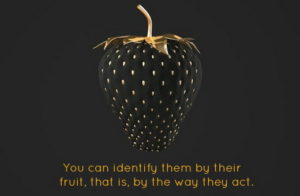 First Ready Genesis 15:1-12,17-18
First Ready Genesis 15:1-12,17-18It happened that the word of the Lord was spoken to Abram in a vision, ‘Have no fear, Abram, I am your shield; your reward will be very great.’ ‘My Lord,’ Abram replied ‘what do you intend to give me? I go childless…’ Then Abram said, ‘See, you have given me no descendants; some man of my household will be my heir.’ And then this word of the Lord was spoken to him, ‘He shall not be your heir; your heir shall be of your own flesh and blood.’ Then taking him outside he said, ‘Look up to heaven and count the stars if you can. Such will be your descendants’ he told him. Abram put his faith in the Lord, who counted this as making him justified. ‘I am the Lord’ he said to him ‘who brought you out of Ur of the Chaldaeans to make you heir to this land.’ ‘My Lord,’ Abram replied ‘how am I to know that I shall inherit it?’ He said to him, ‘Get me a three-year-old heifer, a three-year-old goat, a three-year-old ram, a turtledove and a young pigeon.’ He brought him all these, cut them in half and put half on one side and half facing it on the other; but the birds he did not cut in half. Birds of prey came down on the carcases but Abram drove them off. Now as the sun was setting Abram fell into a deep sleep, and terror seized him. When the sun had set and darkness had fallen, there appeared a smoking furnace and a firebrand that went between the halves. That day the Lord made a Covenant with Abram in these terms: ‘To your descendants I give this land, from the wadi of Egypt to the Great River,
 First Reading Genesis 13:2,5-18
First Reading Genesis 13:2,5-18Abram was a very rich man, with livestock, silver and gold. Lot, who was travelling with Abram, had flocks and cattle of his own, and tents too. The land was not sufficient to accommodate them both at once, for they had too many possessions to be able to live together. Dispute broke out between the herdsmen of Abram’s livestock and those of Lot’s. (The Canaanites and the Perizzites were then living in the land.) Accordingly Abram said to Lot, ‘Let there be no dispute between me and you, nor between my herdsmen and yours, for we are brothers. Is not the whole land open before you? Part company with me: if you take the left, I will go right; if you take the right, I will go left.’ Looking round, Lot saw all the Jordan plain, irrigated everywhere – this was before the Lord destroyed Sodom and Gomorrah – like the garden of the Lord or the land of Egypt, as far as Zoar. So Lot chose all the Jordan plain for himself and moved off eastwards. Thus they parted company: Abram settled in the land of Canaan; Lot settled among the towns of the plain, pitching his tents on the outskirts of Sodom. Now the people of Sodom were vicious men, great sinners against the Lord. The Lord said to Abram after Lot had parted company with him, ‘Look all round from where you are towards the north and the south, towards the east and the west. All the land within sight I will give to you and your descendants for ever. I will make your descendants like the dust on the ground: when men succeed in counting the specks of dust on the ground, then they will be able to count your descendants! Come, travel through the length and breadth of the land, for I mean to give it to you.’
Jesus said to his disciples: ‘Do not give dogs what is holy; and do not throw your pearls in front of pigs, or they may trample them and then turn on you and tear you to pieces. ‘So always treat others as you would like them to treat you; that is the meaning of the Law and the Prophets. ‘Enter by the narrow gate, since the road that leads to perdition is wide and spacious, and many take it; but it is a narrow gate and a hard road that leads to life, and only a few find it.’
 First Reading Jeremiah 1:4-10
First Reading Jeremiah 1:4-10The word of the Lord was addressed to me, saying, ‘Before I formed you in the womb I knew you; before you came to birth I consecrated you; I have appointed you as prophet to the nations.’ I said, ‘Ah, Lord; look, I do not know how to speak: I am a child!’ But the Lord replied, ‘Do not say, “I am a child.” Go now to those to whom I send you and, say whatever I command you. Do not be afraid of them, for I am with you to protect you – it is the Lord who speaks!’ Then the Lord put out his hand and touched my mouth and said to me: ‘There! I am putting my words into your mouth. Look, today I am setting you over nations and over kingdoms, to tear up and to knock down, to destroy and to overthrow,
You did not see Jesus Christ, yet you love him; and still without seeing him, you are already filled with a joy so glorious that it cannot be described, because you believe; and you are sure of the end to which your faith looks forward, that is, the salvation of your souls.
In the days of King Herod of Judaea there lived a priest called Zechariah who belonged to the Abijah section of the priesthood, and he had a wife, Elizabeth by name, who was a descendant of Aaron. Both were worthy in the sight of God, and scrupulously observed all the commandments and observances of the Lord. But they were childless: Elizabeth was barren and they were both getting on in years. Now it was the turn of Zechariah’s section to serve, and he was exercising his priestly office before God when it fell to him by lot, as the ritual custom was, to enter the Lord’s sanctuary and burn incense there. And at the hour of incense the whole congregation was outside, praying. Then there appeared to him the angel of the Lord, standing on the right of the altar of incense. The sight disturbed Zechariah and he was overcome with fear. But the angel said to him, ‘Zechariah, do not be afraid, your prayer has been heard. Your wife Elizabeth is to bear you a son and you must name him John. He will be your joy and delight and many will rejoice at his birth, for he will be great in the sight of the Lord; he must drink no wine, no strong drink. Even from his mother’s womb he will be filled with the Holy Spirit, and he will bring back many of the sons of Israel to the Lord their God. With the spirit and power of Elijah, he will go before him to turn the hearts of fathers towards their children and the disobedient back to the wisdom that the virtuous have, preparing for the Lord a people fit for him.’
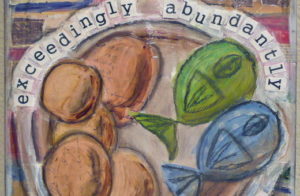 First Reading Genesis 14:18-20
First Reading Genesis 14:18-20Melchizedek king of Salem brought bread and wine; he was a priest of God Most High. He pronounced this blessing: ‘Blessed be Abram by God Most High, creator of heaven and earth, and blessed be God Most High for handing over your enemies to you.’
Jesus made the crowds welcome and talked to them about the kingdom of God; and he cured those who were in need of healing. It was late afternoon when the Twelve came to him and said, ‘Send the people away, and they can go to the villages and farms round about to find lodging and food; for we are in a lonely place here.’ He replied, ‘Give them something to eat yourselves.’ But they said, ‘We have no more than five loaves and two fish, unless we are to go ourselves and buy food for all these people.’ For there were about five thousand men. But he said to his disciples, ‘Get them to sit down in parties of about fifty.’ They did so and made them all sit down. Then he took the five loaves and the two fish, raised his eyes to heaven, and said the blessing over them; then he broke them and handed them to his disciples to distribute among the crowd. They all ate as much as they wanted, and when the scraps remaining were collected they filled twelve baskets.
 First Reading 2 Corinthians 12:1-10
First Reading 2 Corinthians 12:1-10Must I go on boasting, though there is nothing to be gained by it? But I will move on to the visions and revelations I have had from the Lord. I know a man in Christ who, fourteen years ago, was caught up – whether still in the body or out of the body, I do not know; God knows – right into the third heaven. I do know, however, that this same person – whether in the body or out of the body, I do not know; God knows – was caught up into paradise and heard things which must not and cannot be put into human language. I will boast about a man like that, but not about anything of my own except my weaknesses. If I should decide to boast, I should not be made to look foolish, because I should only be speaking the truth; but I am not going to, in case anyone should begin to think I am better than he can actually see and hear me to be.
Jesus said to his disciples: ‘No one can be the slave of two masters: he will either hate the first and love the second, or treat the first with respect and the second with scorn. You cannot be the slave both of God and of money. ‘That is why I am telling you not to worry about your life and what you are to eat, nor about your body and how you are to clothe it. Surely life means more than food, and the body more than clothing! Look at the birds in the sky. They do not sow or reap or gather into barns; yet your heavenly Father feeds them. Are you not worth much more than they are? Can any of you, for all his worrying, add one single cubit to his span of life? And why worry about clothing? Think of the flowers growing in the fields; they never have to work or spin; yet I assure you that not even Solomon in all his regalia was robed like one of these. Now if that is how God clothes the grass in the field which is there today and thrown into the furnace tomorrow, will he not much more look after you, you men of little faith? So do not worry; do not say, “What are we to eat? What are we to drink? How are we to be clothed?” It is the pagans who set their hearts on all these things. Your heavenly Father knows you need them all. Set your hearts on his kingdom first, and on his righteousness, and all these other things will be given you as well. So do not worry about tomorrow: tomorrow will take care of itself. Each day has enough trouble of its own.’
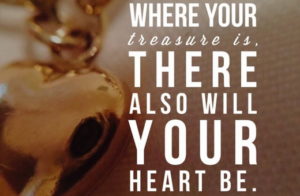 First Reading 2 Corinthians 11:18,21-30
First Reading 2 Corinthians 11:18,21-30So many others have been boasting of their worldly achievements, that I will boast myself. But if anyone wants some brazen speaking – I am still talking as a fool – then I can be as brazen as any of them, and about the same things. Hebrews, are they? So am I. Israelites? So am I. Descendants of Abraham? So am I. The servants of Christ? I must be mad to say this, but so am I, and more than they: more, because I have worked harder, I have been sent to prison more often, and whipped many times more, often almost to death. Five times I had the thirty-nine lashes from the Jews; three times I have been beaten with sticks; once I was stoned; three times I have been shipwrecked and once adrift in the open sea for a night and a day. Constantly travelling, I have been in danger from rivers and in danger from brigands, in danger from my own people and in danger from pagans; in danger in the towns, in danger in the open country, danger at sea and danger from so-called brothers. I have worked and laboured, often without sleep; I have been hungry and thirsty and often starving; I have been in the cold without clothes. And, to leave out much more, there is my daily preoccupation: my anxiety for all the churches. When any man has had scruples, I have had scruples with him; when any man is made to fall, I am tortured.
Jesus said to his disciples: ‘Do not store up treasures for yourselves on earth, where moths and woodworms destroy them and thieves can break in and steal. But store up treasures for yourselves in heaven, where neither moth nor woodworms destroy them and thieves cannot break in and steal. For where your treasure is, there will your heart be also. ‘The lamp of the body is the eye. It follows that if your eye is sound, your whole body will be filled with light. But if your eye is diseased, your whole body will be all darkness. If then, the light inside you is darkness, what darkness that will be!’
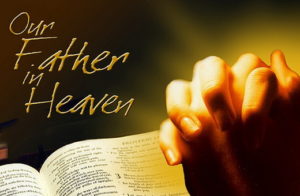 First Reading 2 Corinthians 11:1-11
First Reading 2 Corinthians 11:1-11I only wish you were able to tolerate a little foolishness from me. But of course: you are tolerant towards me. You see, the jealousy that I feel for you is God’s own jealousy: I arranged for you to marry Christ so that I might give you away as a chaste virgin to this one husband. But the serpent, with his cunning, seduced Eve, and I am afraid that in the same way your ideas may get corrupted and turned away from simple devotion to Christ. Because any new-comer has only to proclaim a new Jesus, different from the one that we preached, or you have only to receive a new spirit, different from the one you have already received, or a new gospel, different from the one you have already accepted – and you welcome it with open arms. As far as I can tell, these arch-apostles have nothing more than I have. I may not be a polished speechmaker, but as for knowledge, that is a different matter; surely we have made this plain, speaking on every subject in front of all of you.
Jesus said to his disciples: ‘In your prayers do not babble as the pagans do, for they think that by using many words they will make themselves heard. Do not be like them; your Father knows what you need before you ask him. So you should pray like this: ‘Our Father in heaven, may your name be held holy, your kingdom come, your will be done, on earth as in heaven. Give us today our daily bread. And forgive us our debts, as we have forgiven those who are in debt to us. And do not put us to the test, but save us from the evil one. ‘Yes, if you forgive others their failings, your heavenly Father will forgive you yours; but if you do not forgive others, your Father will not forgive your failings either.’
 First Reading 2 Corinthians 9:6-11
First Reading 2 Corinthians 9:6-11Do not forget: thin sowing means thin reaping; the more you sow, the more you reap. Each one should give what he has decided in his own mind, not grudgingly or because he is made to, for God loves a cheerful giver. And there is no limit to the blessings which God can send you – he will make sure that you will always have all you need for yourselves in every possible circumstance, and still have something to spare for all sorts of good works. As scripture says: He was free in almsgiving, and gave to the poor: his good deeds will never be forgotten.
Jesus said to his disciples: ‘Be careful not to parade your good deeds before men to attract their notice; by doing this you will lose all reward from your Father in heaven. So when you give alms, do not have it trumpeted before you; this is what the hypocrites do in the synagogues and in the streets to win men’s admiration. I tell you solemnly, they have had their reward. But when you give alms, your left hand must not know what your right is doing; your almsgiving must be secret, and your Father who sees all that is done in secret will reward you. ‘And when you pray, do not imitate the hypocrites: they love to say their prayers standing up in the synagogues and at the street corners for people to see them; I tell you solemnly, they have had their reward. But when you pray, go to your private room and, when you have shut your door, pray to your Father who is in that secret place, and your Father who sees all that is done in secret will reward you. ‘When you fast do not put on a gloomy look as the hypocrites do: they pull long faces to let men know they are fasting. I tell you solemnly, they have had their reward. But when you fast, put oil on your head and wash your face, so that no one will know you are fasting except your Father who sees all that is done in secret; and your Father who sees all that is done in secret will reward you.’
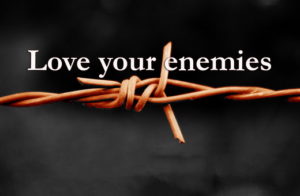 First Reading 2 Corinthians 8:1-9
First Reading 2 Corinthians 8:1-9Now here, brothers, is the news of the grace of God which was given in the churches in Macedonia; and of how, throughout great trials by suffering, their constant cheerfulness and their intense poverty have overflowed in a wealth of generosity. I can swear that they gave not only as much as they could afford, but far more, and quite spontaneously, begging and begging us for the favour of sharing in this service to the saints and, what was quite unexpected, they offered their own selves first to God and, under God, to us.
esus said to his disciples: ‘You have learnt how it was said: You must love your neighbour and hate your enemy. But I say this to you: love your enemies and pray for those who persecute you; in this way you will be sons of your Father in heaven, for he causes his sun to rise on bad men as well as good, and his rain to fall on honest and dishonest men alike. For if you love those who love you, what right have you to claim any credit? Even the tax collectors do as much, do they not? And if you save your greetings for your brothers, are you doing anything exceptional? Even the pagans do as much, do they not? You must therefore be perfect just as your heavenly Father is perfect.’
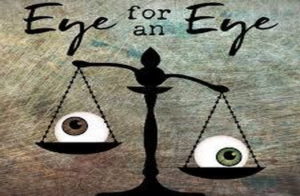 First Reading 2 Corinthians 6:1-10
First Reading 2 Corinthians 6:1-10As his fellow workers, we beg you once again not to neglect the grace of God that you have received. For he says: At the favourable time, I have listened to you; on the day of salvation I came to your help. Well, now is the favourable time; this is the day of salvation.
Jesus said to his disciples: ‘You have learnt how it was said: Eye for eye and tooth for tooth. But I say this to you: offer the wicked man no resistance. On the contrary, if anyone hits you on the right cheek, offer him the other as well; if a man takes you to law and would have your tunic, let him have your cloak as well. And if anyone orders you to go one mile, go two miles with him. Give to anyone who asks, and if anyone wants to borrow, do not turn away.’
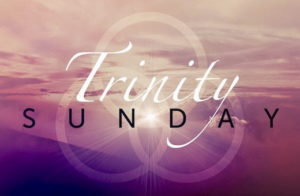 First Reading Proverbs 8:22-31
First Reading Proverbs 8:22-31The Wisdom of God cries aloud: The Lord created me when his purpose first unfolded, before the oldest of his works. From everlasting I was firmly set, from the beginning, before earth came into being. The deep was not, when I was born, there were no springs to gush with water. Before the mountains were settled, before the hills, I came to birth; before he made the earth, the countryside, or the first grains of the world’s dust. When he fixed the heavens firm, I was there, when he drew a ring on the surface of the deep, when he thickened the clouds above, when he fixed fast the springs of the deep, when he assigned the sea its boundaries – and the waters will not invade the shore – when he laid down the foundations of the earth, I was by his side, a master craftsman, delighting him day after day, ever at play in his presence, at play everywhere in his world,
Jesus said to his disciples: ‘I still have many things to say to you but they would be too much for you now. But when the Spirit of truth comes he will lead you to the complete truth, since he will not be speaking as from himself but will say only what he has learnt; and he will tell you of the things to come. He will glorify me, since all he tells you will be taken from what is mine. Everything the Father has is mine; that is why I said: All he tells you will be taken from what is mine.’
 First Reading 2 Corinthians 5:14-21
First Reading 2 Corinthians 5:14-21The love of Christ overwhelms us when we reflect that if one man has died for all, then all men should be dead; and the reason he died for all was so that living men should live no longer for themselves, but for him who died and was raised to life for them.
Jesus said to his disciples: ‘You have learnt how it was said to our ancestors: You must not break your oath, but must fulfil your oaths to the Lord. But I say this to you: do not swear at all, either by heaven, since that is God’s throne; or by the earth, since that is his footstool; or by Jerusalem, since that is the city of the great king. Do not swear by your own head either, since you cannot turn a single hair white or black. All you need say is “Yes” if you mean yes, “No” if you mean no; anything more than this comes from the evil one.’
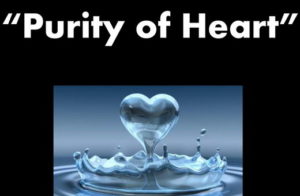 First Reading 2 Corinthians 4:7-15
First Reading 2 Corinthians 4:7-15We are only the earthenware jars that hold this treasure, to make it clear that such an overwhelming power comes from God and not from us. We are in difficulties on all sides, but never cornered; we see no answer to our problems, but never despair; we have been persecuted, but never deserted; knocked down, but never killed; always, wherever we may be, we carry with us in our body the death of Jesus, so that the life of Jesus, too, may always be seen in our body. Indeed, while we are still alive, we are consigned to our death every day, for the sake of Jesus, so that in our mortal flesh the life of Jesus, too, may be openly shown. So death is at work in us, but life in you.
Jesus said to his disciples: ‘You have learnt how it was said: You must not commit adultery. But I say this to you: if a man looks at a woman lustfully, he has already committed adultery with her in his heart. If your right eye should cause you to sin, tear it out and throw it away; for it will do you less harm to lose one part of you than to have your whole body thrown into hell. And if your right hand should cause you to sin, cut it off and throw it away; for it will do you less harm to lose one part of you than to have your whole body go to hell. ‘It has also been said: Anyone who divorces his wife must give her a writ of dismissal. But I say this to you: everyone who divorces his wife, except for the case of fornication, makes her an adulteress; and anyone who marries a divorced woman commits adultery.’
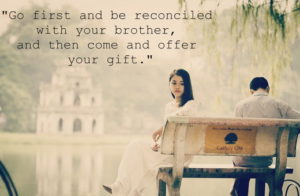 First Reading 2 Corinthians 3:15-4:1,3-6
First Reading 2 Corinthians 3:15-4:1,3-6Even today, whenever Moses is read, the veil is over their minds. It will not be removed until they turn to the Lord. Now this Lord is the Spirit, and where the Spirit of the Lord is, there is freedom. And we, with our unveiled faces reflecting like mirrors the brightness of the Lord, all grow brighter and brighter as we are turned into the image that we reflect; this is the work of the Lord who is Spirit.
Jesus said to his disciples: ‘If your virtue goes no deeper than that of the scribes and Pharisees, you will never get into the kingdom of heaven. ‘You have learnt how it was said to our ancestors: You must not kill; and if anyone does kill he must answer for it before the court. But I say this to you: anyone who is angry with his brother will answer for it before the court; if a man calls his brother “Fool” he will answer for it before the Sanhedrin; and if a man calls him “Renegade” he will answer for it in hell fire. So then, if you are bringing your offering to the altar and there remember that your brother has something against you, leave your offering there before the altar, go and be reconciled with your brother first, and then come back and present your offering. Come to terms with your opponent in good time while you are still on the way to the court with him, or he may hand you over to the judge and the judge to the officer, and you will be thrown into prison. I tell you solemnly, you will not get out till you have paid the last penny.’
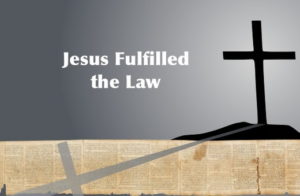 First Reading 2 Corinthians 3:4-11
First Reading 2 Corinthians 3:4-11Jesus said to his disciples: ‘Do not imagine that I have come to abolish the Law or the Prophets. I have come not to abolish but to complete them. I tell you solemnly, till heaven and earth disappear, not one dot, not one little stroke, shall disappear from the Law until its purpose is achieved. Therefore, the man who infringes even one of the least of these commandments and teaches others to do the same will be considered the least in the kingdom of heaven; but the man who keeps them and teaches them will be considered great in the kingdom of heaven.’
 First Reading Acts 11:21-26,13:1-3
First Reading Acts 11:21-26,13:1-3A great number believed and were converted to the Lord. The church in Jerusalem heard about this and they sent Barnabas to Antioch. There he could see for himself that God had given grace, and this pleased him, and he urged them all to remain faithful to the Lord with heartfelt devotion; for he was a good man, filled with the Holy Spirit and with faith. And a large number of people were won over to the Lord. Barnabas then left for Tarsus to look for Saul, and when he found him he brought him to Antioch. As things turned out they were to live together in that church a whole year, instructing a large number of people. It was at Antioch that the disciples were first called ‘Christians.’
Jesus said to his apostles, ‘As you go, proclaim that the kingdom of heaven is close at hand. Cure the sick, raise the dead, cleanse the lepers, cast out devils. You received without charge, give without charge. Provide yourselves with no gold or silver, not even with a few coppers for your purses, with no haversack for the journey or spare tunic or footwear or a staff, for the workman deserves his keep. ‘Whatever town or village you go into, ask for someone trustworthy and stay with him until you leave. As you enter his house, salute it, and if the house deserves it, let your peace descend upon it; if it does not, let your peace come back to you.’
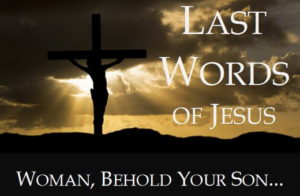 First Reading Genesis 3:9-15,20
First Reading Genesis 3:9-15,20After Adam had eaten of the tree the Lord God called to him. ‘Where are you?’ he asked. ‘I heard the sound of you in the garden;’ he replied ‘I was afraid because I was naked, so I hid.’ ‘Who told you that you were naked?’ he asked ‘Have you been eating of the tree I forbade you to eat?’ The man replied, ‘It was the woman you put with me; she gave me the fruit, and I ate it.’ Then the Lord God asked the woman, ‘What is this you have done?’ The woman replied, ‘The serpent tempted me and I ate.’ Then the Lord God said to the serpent, ‘Because you have done this, ‘Be accursed beyond all cattle, all wild beasts. You shall crawl on your belly and eat dust every day of your life. I will make you enemies of each other: you and the woman, your offspring and her offspring. It will crush your head and you will strike its heel.’
Near the cross of Jesus stood his mother and his mother’s sister, Mary the wife of Clopas, and Mary of Magdala. Seeing his mother and the disciple he loved standing near her, Jesus said to his mother, ‘Woman, this is your son.’ Then to the disciple he said, ‘This is your mother.’ And from that moment the disciple made a place for her in his home. After this, Jesus knew that everything had now been completed, and to fulfil the scripture perfectly he said, ‘I am thirsty.’ A jar full of vinegar stood there, so putting a sponge soaked in the vinegar on a hyssop stick they held it up to his mouth. After Jesus had taken the vinegar he said, ‘It is accomplished’; and bowing his head he gave up his spirit. It was Preparation Day, and to prevent the bodies remaining on the cross during the sabbath – since that sabbath was a day of special solemnity – the Jews asked Pilate to have the legs broken and the bodies taken away. Consequently the soldiers came and broke the legs of the first man who had been crucified with him and then of the other. When they came to Jesus, they found he was already dead, and so instead of breaking his legs one of the soldiers pierced his side with a lance; and immediately there came out blood and water.
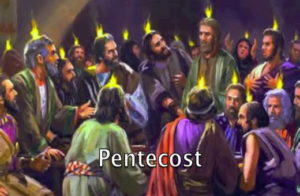 First Reading Genesis 11:1-9
First Reading Genesis 11:1-9Throughout the earth men spoke the same language, with the same vocabulary. Now as they moved eastwards they found a plain in the land of Shinar where they settled. They said to one another, ‘Come, let us make bricks and bake them in the fire.’ (For stone they used bricks, and for mortar they used bitumen). ‘Come,’ they said ‘let us build ourselves a town and a tower with its top reaching heaven. Let us make a name for ourselves, so that we may not be scattered about the whole earth.’
No one can say, ‘Jesus is Lord’ unless he is under the influence of the Holy Spirit. There is a variety of gifts but always the same Spirit; there are all sorts of service to be done, but always to the same Lord; working in all sorts of different ways in different people, it is the same God who is working in all of them. The particular way in which the Spirit is given to each person is for a good purpose.
In the evening of the first day of the week, the doors were closed in the room where the disciples were, for fear of the Jews. Jesus came and stood among them. He said to them, ‘Peace be with you’, and showed them his hands and his side. The disciples were filled with joy when they saw the Lord, and he said to them again, ‘Peace be with you. ‘As the Father sent me, so am I sending you.’ After saying this he breathed on them and said: ‘Receive the Holy Spirit. For those whose sins you forgive, they are forgiven; for those whose sins you retain, they are retained.’
 First Reading Acts 28:16-20,30-31
First Reading Acts 28:16-20,30-31On our arrival in Rome Paul was allowed to stay in lodgings of his own with the soldier who guarded him. After three days he called together the leading Jews. When they had assembled, he said to them, ‘Brothers, although I have done nothing against our people or the customs of our ancestors, I was arrested in Jerusalem and handed over to the Romans. They examined me and would have set me free, since they found me guilty of nothing involving the death penalty; but the Jews lodged an objection, and I was forced to appeal to Caesar, not that I had any accusation to make against my own nation. That is why I have asked to see you and talk to you, for it is on account of the hope of Israel that I wear this chain.’
Peter turned and saw the disciple Jesus loved following them – the one who had leaned on his breast at the supper and had said to him, ‘Lord, who is it that will betray you?’ Seeing him, Peter said to Jesus, ‘What about him, Lord?’ Jesus answered, ‘If I want him to stay behind till I come, what does it matter to you? You are to follow me.’ The rumour then went out among the brothers that this disciple would not die. Yet Jesus had not said to Peter, ‘He will not die’, but, ‘If I want him to stay behind till I come.’ This disciple is the one who vouches for these things and has written them down, and we know that his testimony is true. There were many other things that Jesus did; if all were written down, the world itself, I suppose, would not hold all the books that would have to be written.
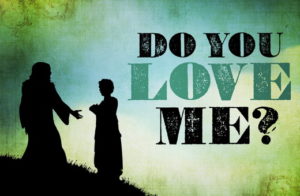 First Reading Acts 25:13-21
First Reading Acts 25:13-21Jesus showed himself to his disciples, and after they had eaten he said to Simon Peter, ‘Simon son of John, do you love me more than these others do?’ He answered, ‘Yes Lord, you know I love you.’ Jesus said to him, ‘Feed my lambs.’ A second time he said to him, ‘Simon son of John, do you love me?’ He replied, ‘Yes, Lord, you know I love you.’ Jesus said to him, ‘Look after my sheep.’ Then he said to him a third time, ‘Simon son of John, do you love me?’ Peter was upset that he asked him the third time, ‘Do you love me?’ and said, ‘Lord, you know everything; you know I love you.’ Jesus said to him, ‘Feed my sheep. ‘I tell you most solemnly, when you were young you put on your own belt and walked where you liked; but when you grow old you will stretch out your hands, and somebody else will put a belt round you and take you where you would rather not go.’ In these words he indicated the kind of death by which Peter would give glory to God. After this he said, ‘Follow me.’
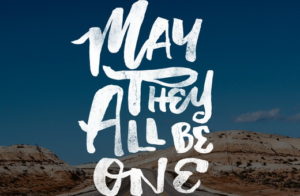 First Reading Acts 22:30,23:6-11
First Reading Acts 22:30,23:6-11Since the tribune wanted to know what precise charge the Jews were bringing, he freed Paul and gave orders for a meeting of the chief priests and the entire Sanhedrin; then he brought Paul down and stood him in front of them. Now Paul was well aware that one section was made up of Sadducees and the other of Pharisees, so he called out in the Sanhedrin, ‘Brothers, I am a Pharisee and the son of Pharisees. It is for our hope in the resurrection of the dead that I am on trial.’ As soon as he said this a dispute broke out between the Pharisees and Sadducees, and the assembly was split between the two parties. For the Sadducees say there is neither resurrection, nor angel, nor spirit, while the Pharisees accept all three. The shouting grew louder, and some of the scribes from the Pharisees’ party stood up and protested strongly, ‘We find nothing wrong with this man. Suppose a spirit has spoken to him, or an angel?’ Feeling was running high, and the tribune, afraid that they would tear Paul to pieces, ordered his troops to go down and haul him out and bring him into the fortress.
Jesus raised his eyes to heaven and said: ‘Holy Father, I pray not only for these, but for those also who through their words will believe in me. May they all be one. Father, may they be one in us, as you are in me and I am in you, so that the world may believe it was you who sent me. I have given them the glory you gave to me, that they may be one as we are one. With me in them and you in me, may they be so completely one that the world will realise that it was you who sent me and that I have loved them as much as you loved me. Father, I want those you have given me to be with me where I am, so that they may always see the glory you have given me because you loved me before the foundation of the world. Father, Righteous One, the world has not known you, but I have known you, and these have known that you have sent me. I have made your name known to them and will continue to make it known, so that the love with which you loved me may be in them, and so that I may be in them.’
 First Reading Acts 20:28-38
First Reading Acts 20:28-38Paul addressed these words to the elders of the church of Ephesus: ‘Be on your guard for yourselves and for all the flock of which the Holy Spirit has made you the overseers, to feed the Church of God which he bought with his own blood. I know quite well that when I have gone fierce wolves will invade you and will have no mercy on the flock. Even from your own ranks there will be men coming forward with a travesty of the truth on their lips to induce the disciples to follow them. So be on your guard, remembering how night and day for three years I never failed to keep you right, shedding tears over each one of you. And now I commend you to God, and to the word of his grace that has power to build you up and to give you your inheritance among all the sanctified. ‘I have never asked anyone for money or clothes; you know for yourselves that the work I did earned enough to meet my needs and those of my companions. I did this to show you that this is how we must exert ourselves to support the weak, remembering the words of the Lord Jesus, who himself said, “There is more happiness in giving than in receiving.”’
Jesus raised his eyes to heaven and said: ‘Holy Father, keep those you have given me true to your name, so that they may be one like us. While I was with them, I kept those you had given me true to your name. I have watched over them and not one is lost except the one who chose to be lost, and this was to fulfil the scriptures. But now I am coming to you and while still in the world I say these things to share my joy with them to the full. I passed your word on to them, and the world hated them, because they belong to the world no more than I belong to the world. I am not asking you to remove them from the world, but to protect them from the evil one. They do not belong to the world any more than I belong to the world. Consecrate them in the truth; your word is truth. As you sent me into the world, I have sent them into the world, and for their sake I consecrate myself so that they too may be consecrated in truth.’
 First Reading Acts 20:17-27
First Reading Acts 20:17-27From Miletus Paul sent for the elders of the church of Ephesus. When they arrived he addressed these words to them: ‘You know what my way of life has been ever since the first day I set foot among you in Asia, how I have served the Lord in all humility, with all the sorrows and trials that came to me through the plots of the Jews. I have not hesitated to do anything that would be helpful to you; I have preached to you, and instructed you both in public and in your homes, urging both Jews and Greeks to turn to God and to believe in our Lord Jesus. ‘And now you see me a prisoner already in spirit; I am on my way to Jerusalem, but have no idea what will happen to me there, except that the Holy Spirit, in town after town, has made it clear enough that imprisonment and persecution await me. But life to me is not a thing to waste words on, provided that when I finish my race I have carried out the mission the Lord Jesus gave me – and that was to bear witness to the Good News of God’s grace.
Jesus raised his eyes to heaven and said: ‘Father, the hour has come: glorify your Son so that your Son may glorify you; and, through the power over all mankind that you have given him, let him give eternal life to all those you have entrusted to him. And eternal life is this: to know you, the only true God, and Jesus Christ whom you have sent. I have glorified you on earth and finished the work that you gave me to do. Now, Father, it is time for you to glorify me with that glory I had with you before ever the world was. I have made your name known to the men you took from the world to give me. They were yours and you gave them to me, and they have kept your word. Now at last they know that all you have given me comes indeed from you; for I have given them the teaching you gave to me, and they have truly accepted this, that I came from you, and have believed that it was you who sent me. I pray for them; I am not praying for the world but for those you have given me, because they belong to you: all I have is yours and all you have is mine, and in them I am glorified. I am not in the world any longer, but they are in the world, and I am coming to you.’
 First Reading Acts 19:1-8
First Reading Acts 19:1-8While Apollos was in Corinth, Paul made his way overland as far as Ephesus, where he found a number of disciples. When he asked, ‘Did you receive the Holy Spirit when you became believers?’ they answered, ‘No, we were never even told there was such a thing as a Holy Spirit.’ ‘Then how were you baptised?’ he asked. ‘With John’s baptism’ they replied. ‘John’s baptism’ said Paul ‘was a baptism of repentance; but he insisted that the people should believe in the one who was to come after him – in other words, Jesus.’ When they heard this, they were baptised in the name of the Lord Jesus, and the moment Paul had laid hands on them the Holy Spirit came down on them, and they began to speak with tongues and to prophesy. There were about twelve of these men.
His disciples said to Jesus, ‘Now you are speaking plainly and not using metaphors! Now we see that you know everything, and do not have to wait for questions to be put into words; because of this we believe that you came from God.’ Jesus answered them: ‘Do you believe at last? Listen; the time will come – in fact it has come already – when you will be scattered, each going his own way and leaving me alone. And yet I am not alone, because the Father is with me. I have told you all this so that you may find peace in me. In the world you will have trouble, but be brave: I have conquered the world.’
 First Reading Acts 18:23-28
First Reading Acts 18:23-28
